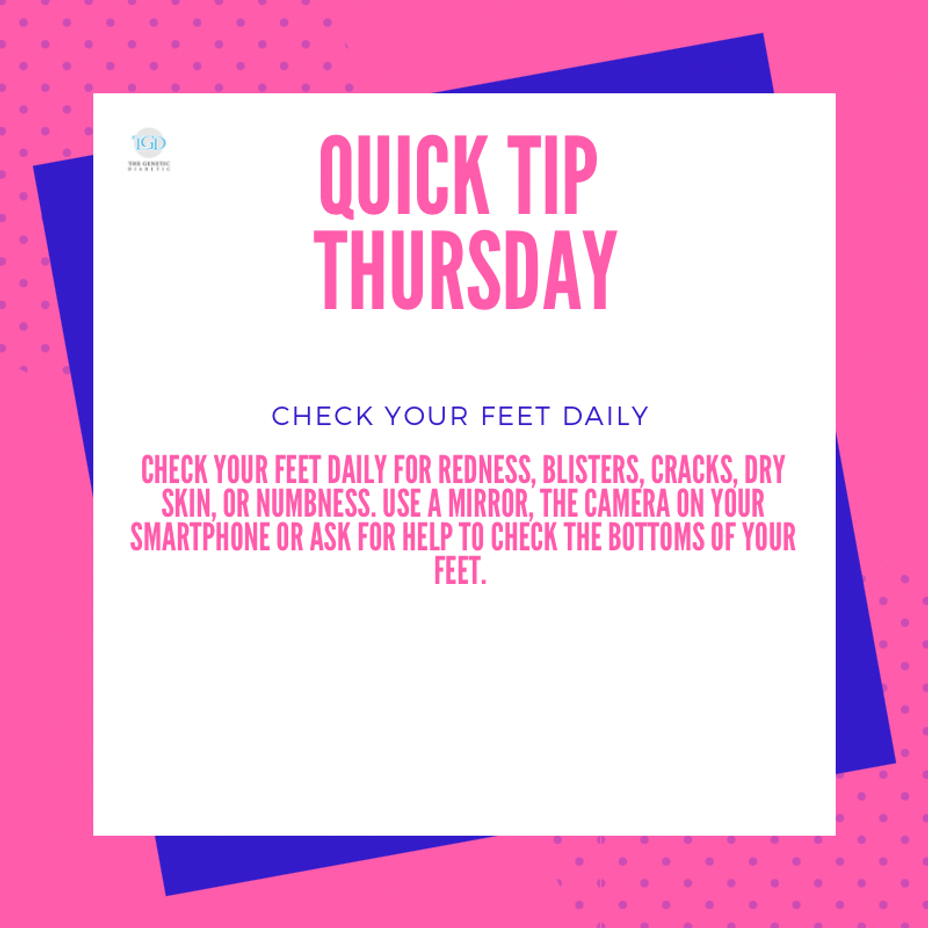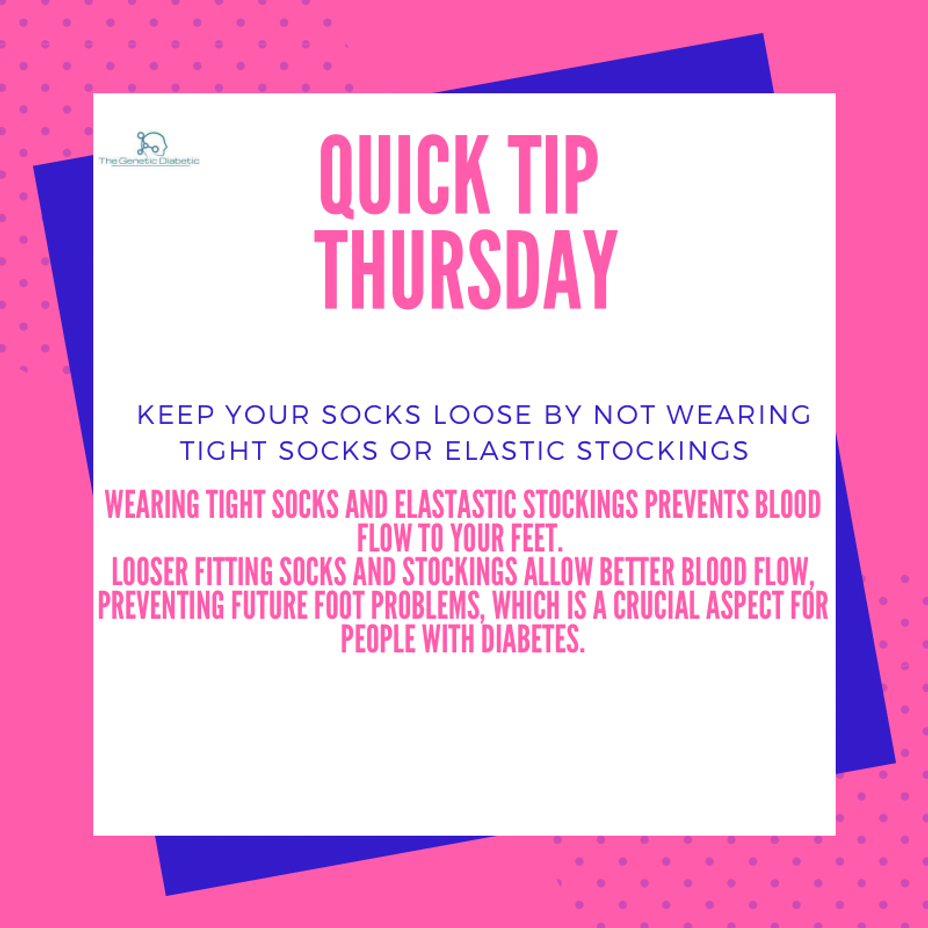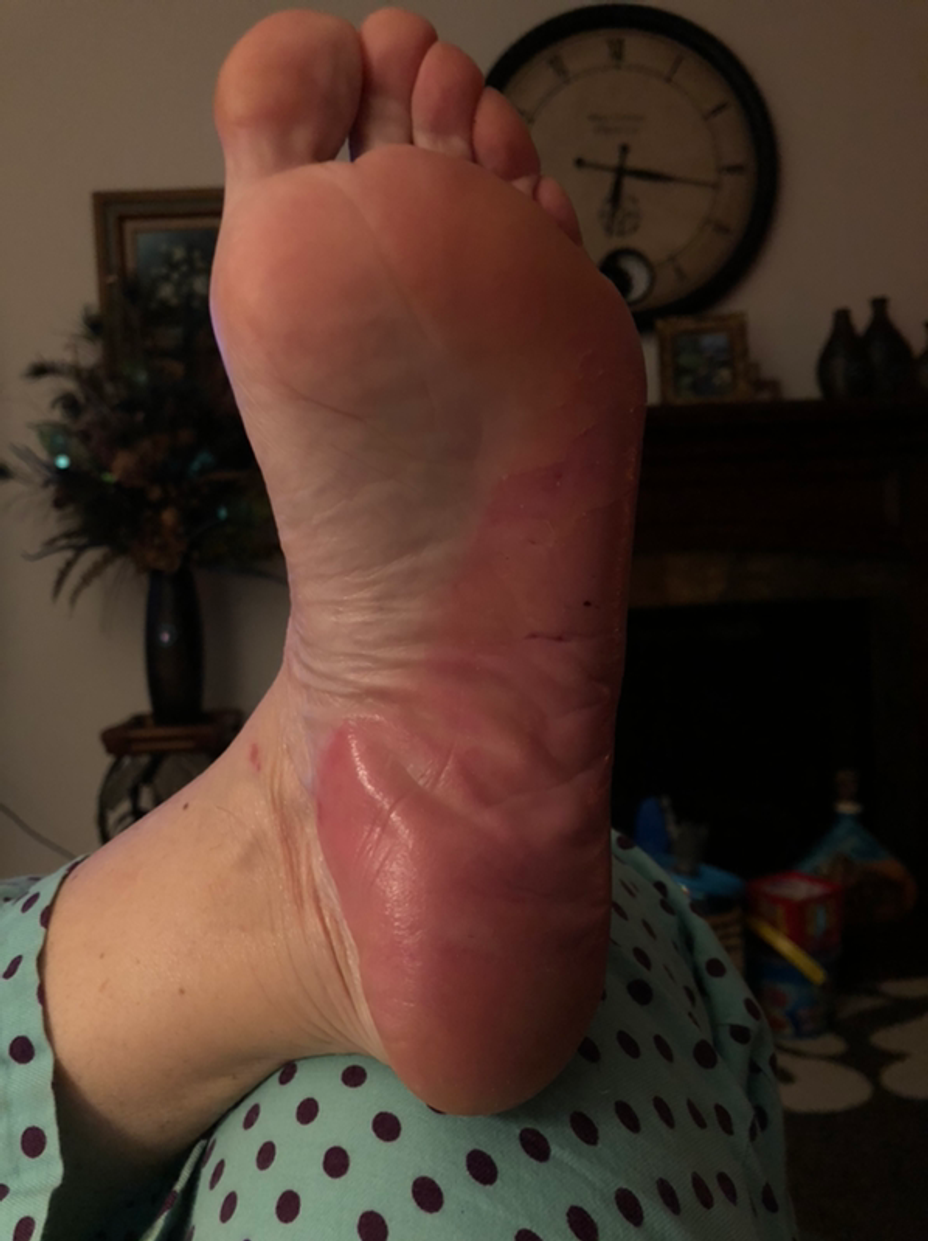Feeling positive despite having cold symptoms
#grateful#hopeful#gray skies#productive#Old paperwork to send to dumpster #Feet hurting from inflammation # ginger tea over honeyvia Pinterest

Although you should have your feet checked at every health care visit, you also have the responsibility to keep your feet healthy by checking them every day-even if they feel fine-and getting them checked by your doctor if you have a cut or blister that won't go away. My colleague, Christopher shares 4 tips for self-examination of your feet in his latest article from Type2diabetes.com:
🦶Tips for Performing a Foot Exam
www.type2diabetes.com/living/tips-foot-exam
❓Prior to reading this article, how often have you self-examined your feet?
❓After reading the article, what changes would you make to the current way you take care of your feet?
Share your takeaways in the comments 👇🏾
#Diabetes #DiabetesType1 #DiabetesType2 #Diabetestype3 #lada #mody #prediabetes #GestationalDiabetes #ChronicIllness #AutoimmuneDisease #Lifestyle #Feet #Health #HealthCare #Support #SupportGroups #MightyTogether


Check your feet daily for redness, blisters, cracks, dry skin, or numbness. Use a mirror, the camera on your smartphone or ask for help to check the bottoms of your feet.
#Diabetes #DiabetesType1 #DiabetesType2 #Diabetestype3 #lada #mody #prediabetes #GestationalDiabetes #JuvenileDiabetesType1 #ChronicIllness #AutoimmuneDisease #Lifestyle #Health #Feet #Support #SupportGroups #MightyTogether

Wearing tight socks and elastastic stockings prevents blood flow to your feet.
Looser fitting socks and stockings allow better blood flow, preventing future foot problems, which is a crucial aspect for people with diabetes.
#DiabetesType2 #Diabetes #DiabetesType1 #ChronicIllness #Feet #LimbAmputation #Health

A person with diabetes is more likely to have foot problems. Diabetes is known to cause nerve damage, called diabetic neuropathy, which causes tingling, pain, and may cause loss of sensation. The loss of feeling in your feet can lead to cuts and sores. A blister on your foot can lead to infection. Diabetes can also inhibit the flow of blood to your feet. It can be hard for a sore or infection to heal if there is not enough blood flow to the legs and feet. Sometimes a bad infection will not heal, leading to gangrene.
Gangrene and foot ulcers that do not improve can lead to an amputation of your toe, foot, or leg.
Charcot's foot is a rare condition, which begins with redness, warmth, and swelling. Nerve damage from diabetes is another possibility that can lead to foot changes. Over time, your feet and toes may shift or break, leading to an odd shape, such as having a "rocker bottom."
You can decrease your risk of having diabetes-related foot problems by taking care of your feet every day. Taking good care of your feet will prevent serious infections and amputations. It's also important to manage your blood sugar, so that your feet stay healthy.
Here's what we can do to keep our feet healthy:
🦶Make sure you check your feet every day
🦶Keep your feet clean by washing them every day
🦶Gently smooth corns and calluses
🦶Toenails should be trimmed straight across
🦶Always wear shoes and socks
🦶Make sure your feet are protected from cold and heat
🦶Ensure that your feet are getting blood flow
🦶Every health care visit should include a foot examination
Call your health care provider right away if you have the following assignments:
⚠️ A cut, blister, or bruise on your foot that doesn't heal after a few days
⚠️ A foot that has a red or warm color or that is painful can indicate an infection
⚠️ A callus containing dried blood, which can be an indication of a wound under the callus
⚠️ An infection that turns black and smells -- a sign of gangrene
If needed, ask your provider for a referral to a foot doctor or podiatrist.
Source: NIDDK's Health Information Center
#DiabetesType2 #Diabetes #DiabetesType1 #ChronicIllness #Health #Feet

I am new here & am desperately seeking any help or info regarding this red, shiny, itchy, burning, painful rash that is on the soles of both of my feet. I suffer from Lyme Disease, borriella miyamotoi, fibromyalgia, migraines. I have been dealing with this rash for 4 years. it has gotten worse & I have been to numerous doctors and specialists and even a “grand round” of a team of approx 15 doctors at a medical center and no one can tell me what it is and no medicine I have tried to date has helped.
Ever since I was very young I noticed I always rub my feet together. I will do it to the point of discomfort at times. I will do it when I’m going to sleep, just laying down, at the doctors, anxious, just sitting, and watching tv. My legs and feet will become tired from doing it so much and I won’t want to stop doing it. I only notice it when my feet/ ankles become tired or they start to hurt from rubbing together. I think it’s really weird that I do it and I don’t want to keep doing it. #Habit #Uncomfortable #Feet #AnkleFootOrthosis #Rub #Nervoushabit